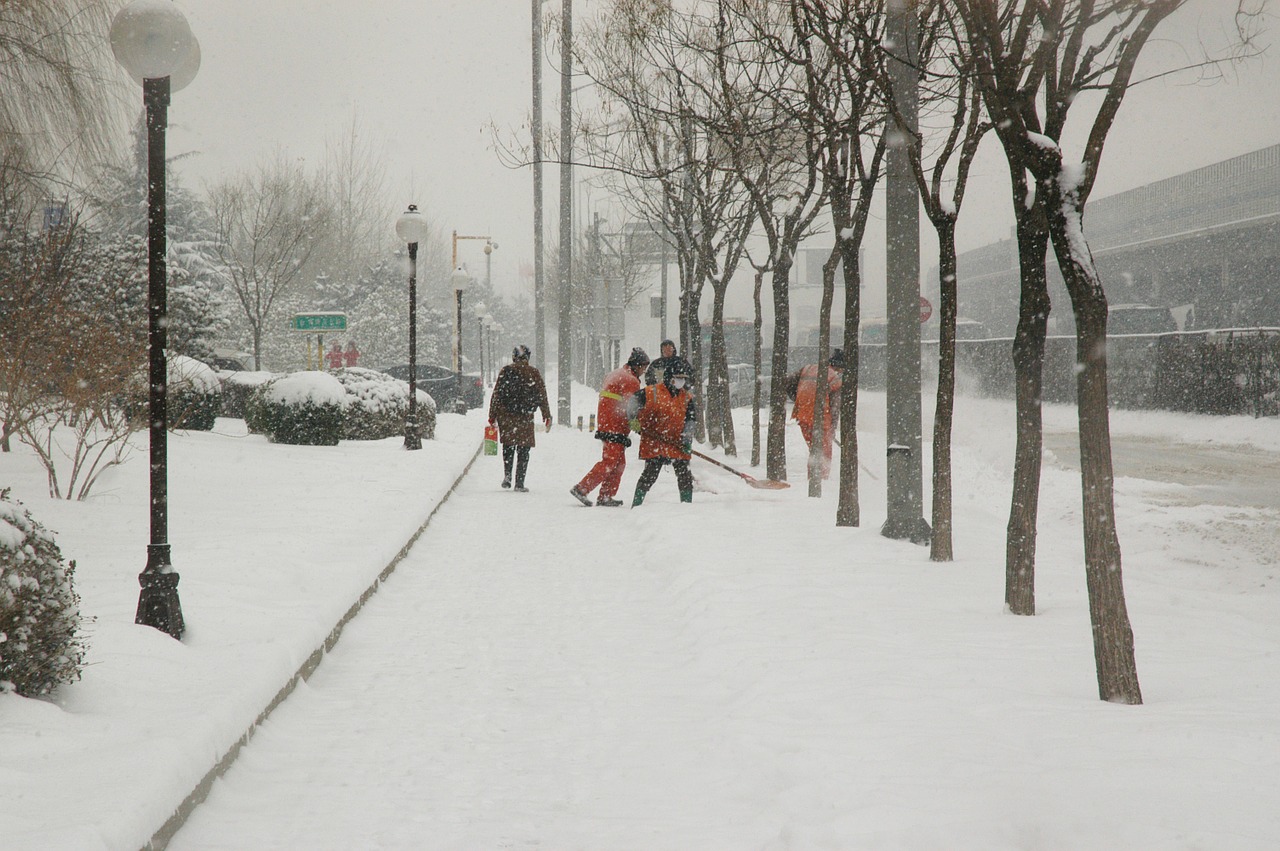Unless you are really into skiing, snowmobiling, or dog sledding, chances any mention of snow won’t have you jumping for joy. Along with all the holiday shopping, swapping out summer clothes, and getting things ready around your home, your office will need some prep work too. Make sure you’re prepared for blustery weather so you and your employees can work safely.
Here are 8 things to get in line to make sure you’re winter-ready.
- Inclement weather plan
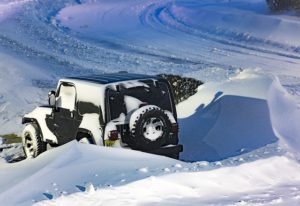
Technology allows many employees to work from home full or part-time, but those who come into the office every day need to know what the inclement weather protocol is. Do you allow “adult snow days”? Do you require employees to make up missed hours when the weather clears? Whatever your policy, make sure it is clearly outlined in the employee handbook and you send out a reminder email before weather starts to get nasty.
Set up a clear line of communication between employees/management so if you do have to make the call to close the office, any confusion is eliminated. There’s nothing worse than driving to work in risky conditions only to find a locked office.
As you consider the best way to deal with attendance during dangerous weather, remember that safety of your employees always comes first.
- Driveway maintenance
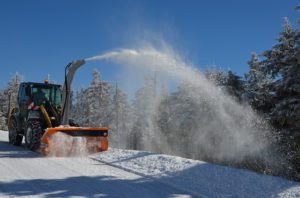
Before it starts snowin’ and blowin’ sure you have a reliable system in place to clear your office driveway, landing zones, and walkways of snow and ice. You might hire a professional snowplower, purchase your own plow, and/or bestow shoveling duty onto your employees. If you must choose the latter, make sure they know how to properly shovel and spread salt on icy paths without hurting or overexerting themselves. As much as it is a full-body workout, shoveling can be pretty dangerous. The last thing anyone needs at work is a tweaked out back, rolled ankle, or frostbite.
- Vehicle/equipment maintenance
Before pulling vehicles into the garage and throwing them in park from December through February (or March, or April), clean them – inside and out. Give them one last bath and make sure nothing is being stored in them that could be damaged in extreme cold.
If you are going to continue driving the vehicle through the winter, check your tires to insure good inflation and that you have good tread life. Get a vehicle winter maintenance check-up, which includes items like your battery, belts, houses, radiator, lights, brakes, heater/defroster, and wipers. Keep your tank full, and try not to let your tank fall below half during winter travel. Program your radio for local traffic and weather updates. If you must travel know what you’re traveling into.
If you have other equipment such as tractors or lawn mowers, make sure to properly winterize them. Simple things like replacing the oil, stabilizing or draining the gas, and giving it a good cleaning will keep your things in good condition and save you big headaches down the road.
- Generator
Power outages are a very real possibility in the winter months, especially during ice storms. Dangerous weather conditions can make it difficult for power companies to get to outages quickly, especially when large areas are in a blackout. Just in case, it is wise to have a generator on site that can sustain power to backup servers, refrigerators, and any other gadgets that require 27/7 operation. You might be able to get away with shutting down the office for a few hours, but some things you cannot afford to leave without power.
Before making a purchase decision about a generator, make sure to do your homework. Amazon is a great resource for reading customer reviews. Remember – don’t buy less than you need, but don’t feel like you need to go overboard, either.
- Emergency kits
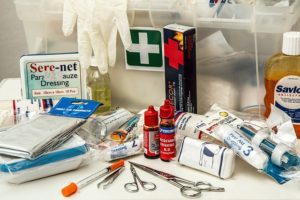
Keeping inventory of first aid/emergency kits should always be on your list. During winter, it’s even more important that they are readily available and equipped.
Make sure that all company vehicles are equipped with medical kits, flash light, phone charger, and a blanket. Consider building a larger stock of emergency supplies and keeping it on reserve in the office, in case weather gets so bad so suddenly that driving home is hazardous for employees. (Our headquarters is in Michigan’s Upper Peninsula. Stranger things have happened.)
- Check your batteries
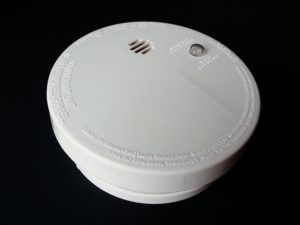
Everyone knows to check your smoke detector batteries, but carbon monoxide detectors are just as important. When it’s so cold outside that the furnace just isn’t cutting it, using a fuel-burning space heater can make your workspace more bearable – and increase your risk of carbon monoxide poisoning. Before anything bad (and completely preventable) happens over the winter, make sure that all the batteries are fresh and devices are tested.
- Office building once-over
This might seem obvious, but before the first hint of snow, do a complete once-over of your office building and out buildings. Are all your windows tight and secure? Roofs sturdy? Equipped with shovels and salt? Get ready before the first sight of snow to save yourself time and money in the future.
- Stock bottled water
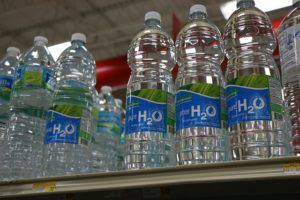
We have all seen the pictures of grocery store shelves being completely sold out of bottled water as soon as the alarm is sounded for a hurricane. The good news about snow is that every year, we know it’s coming. If a snow storm is your biggest weather risk in the winter, you can never be too prepared. Don’t wait until the first blizzard is being live tracked on local TV – stock up on water early and often. It won’t go to waste.
What will you do to prepare for winter? Let us know in the comments!

